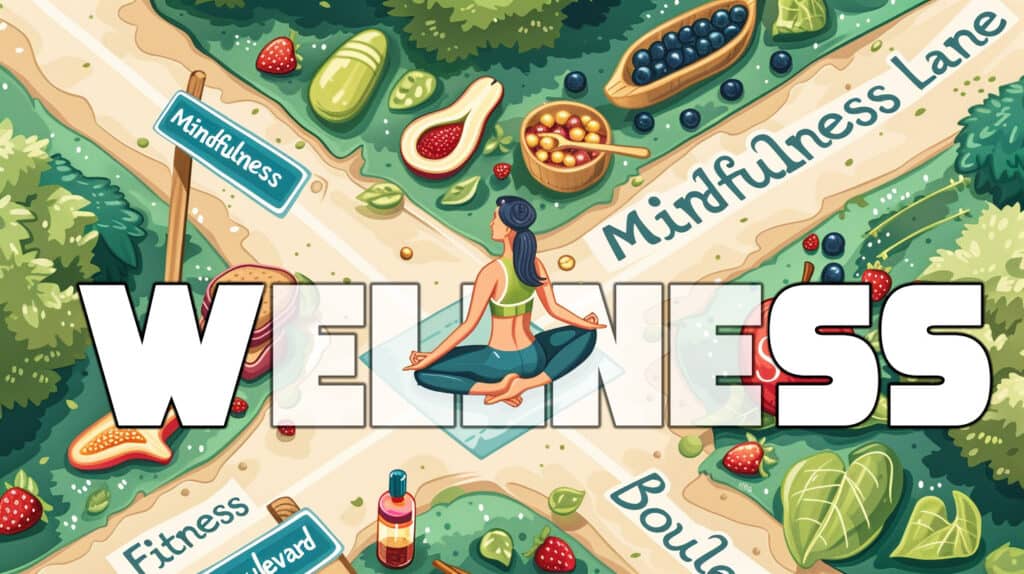
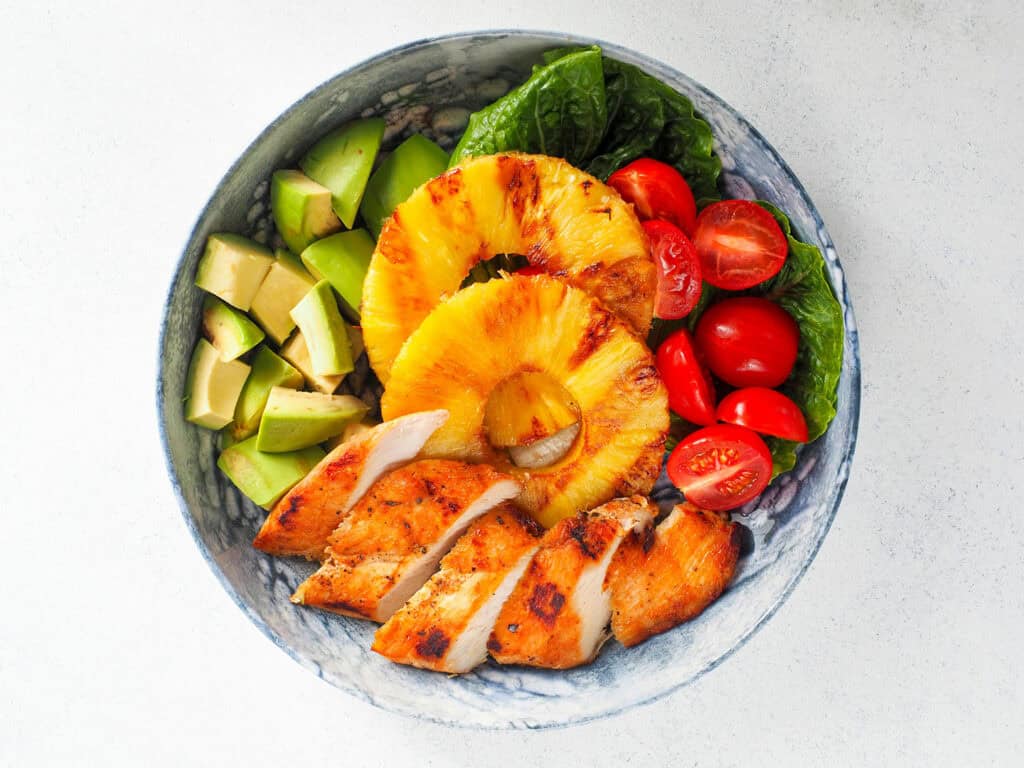
Struggling to Stay Energized During a Fast? Here’s What to Eat Before You Start! Fasting can be challenging, especially if you feel hungry, fatigued, or dehydrated too soon. But what if you could stay full longer, maintain steady energy, and avoid discomfort just by eating the right foods?
This guide will help you prepare with 9 must-know items and choices—including complex carbs, healthy fats, protein, fiber, and electrolytes—to fuel your body and make fasting easier.
Avoid common mistakes, follow our pre-fast meal tips, and set yourself up for success.
Let’s get started on making your fast smoother and more effective!
1. Complex Carbohydrates
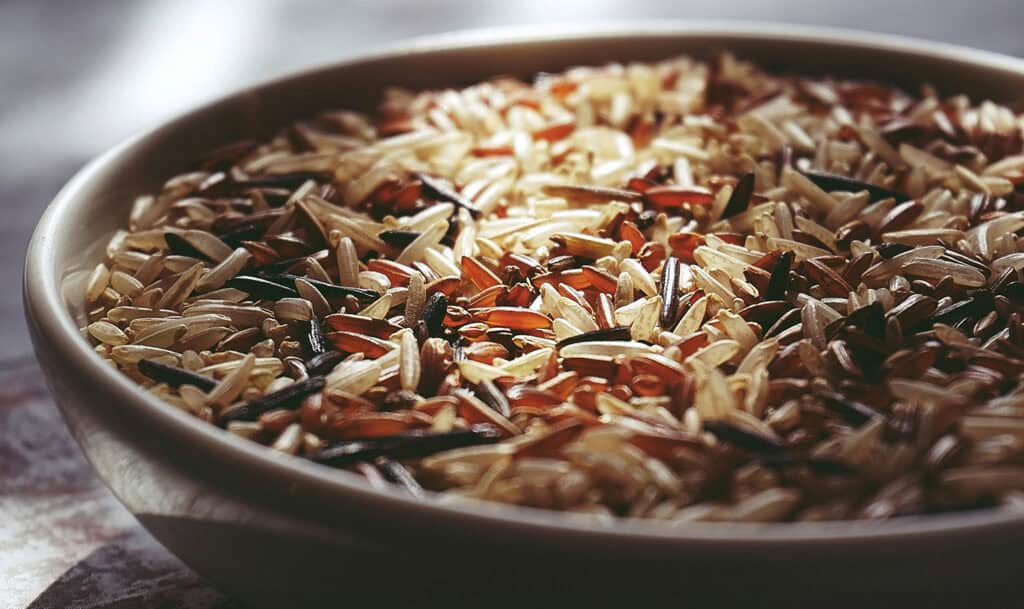
Carbohydrates are your body’s main source of energy. Complex carbs digest slowly, releasing energy over time. This helps you stay full and avoid energy crashes. Unlike simple sugars, complex carbs prevent blood sugar spikes and dips.
Best Complex Carbs to Eat Before a Fast:
- Oatmeal – Provides fiber and keeps digestion slow.
- Brown rice – A steady energy source that is easy to digest.
- Whole wheat bread – Contains fiber and nutrients to support fasting.
- Quinoa – High in protein and slow-digesting carbs.
- Sweet potatoes – Packed with fiber, vitamins, and long-lasting energy.
Tip: Combine complex carbs with protein and healthy fats for a balanced pre-fast meal and wellness.
See also What Are the Rules of a Fasting Diet? 20 Tips for Better Health
2. Healthy Fats
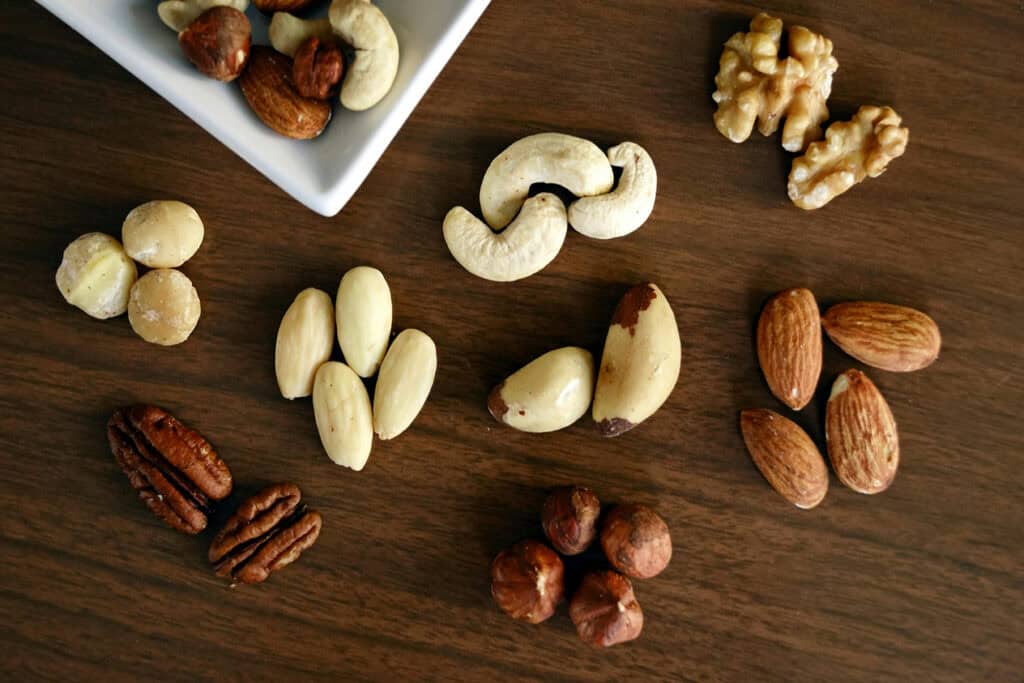
Fats digest slowly and help keep you full longer. They also support brain function, reduce inflammation, and provide essential nutrients. Unlike unhealthy fats, good fats improve heart health and keep your metabolism steady.
Best Healthy Fats to Eat Before a Fast:
- Avocados – High in fiber and heart-healthy fats.
- Nuts (almonds, walnuts, cashews) – Packed with protein and good fats.
- Seeds (chia, flaxseeds, sunflower seeds) – Rich in omega-3 fatty acids.
- Olive oil – A great addition to salads or cooked meals.
- Coconut oil – Supports digestion and provides quick energy.
Tip: Avoid fried foods and unhealthy fats, as they can make you feel sluggish during fasting.
3. High-Protein Foods
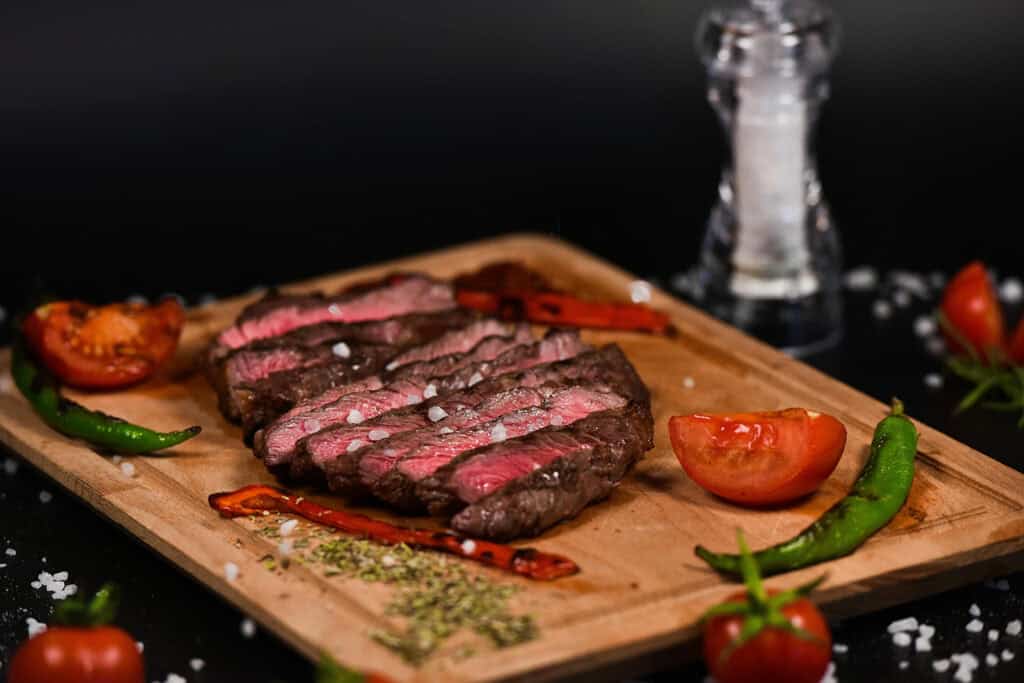
Protein is essential for muscle health and energy. It helps prevent muscle loss during fasting and keeps you full longer. Unlike carbs, protein does not cause rapid blood sugar changes.
Best High-Protein Foods to Eat Before a Fast:
- Eggs – A complete protein source with essential nutrients.
- Chicken or turkey – Lean meats that keep you satisfied.
- Fish (salmon, tuna, sardines) – Rich in omega-3s and protein.
- Greek yogurt – Contains probiotics that support digestion.
- Tofu or tempeh – Great plant-based protein options.
Tip: Pair protein with fiber-rich foods for better digestion and fullness.
4. Fiber-Rich Foods
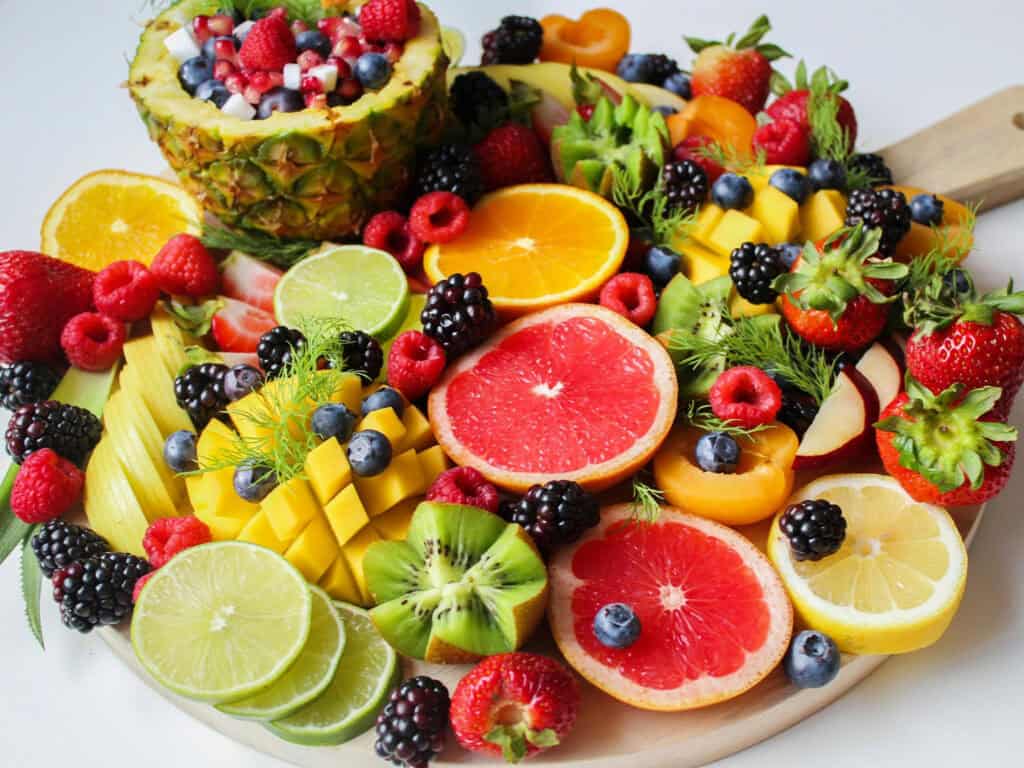
Fiber slows digestion and keeps you full longer. It also supports gut health and prevents constipation, which can be common during fasting. High-fiber foods help regulate blood sugar and improve digestion.
Best Fiber-Rich Foods to Eat Before a Fast:
- Vegetables (broccoli, spinach, carrots) – Provide vitamins and minerals.
- Fruits (apples, berries, bananas) – Natural sugars give energy without crashes.
- Legumes (beans, lentils, chickpeas) – High in fiber and protein.
- Whole grains (brown rice, quinoa, whole wheat bread) – Support digestion and fullness.
Tip: Avoid too much fiber at once, as it can cause bloating.
See also 7-Day Meal Plan for a Low Potassium Diet: Healthy and Delicious Options
5. Hydrating Foods and Drinks

Dehydration can cause headaches, dizziness, and fatigue during fasting. Drinking enough water and eating water-rich foods helps your body stay hydrated.
Best Hydrating Foods and Drinks:
- Cucumbers – Over 90% water and refreshing.
- Watermelon – Provides water and natural sugars.
- Oranges – High in vitamin C and hydration.
- Soups (vegetable broth, bone broth) – Hydrating and full of nutrients.
- Herbal teas (chamomile, peppermint, green tea) – Hydrate without caffeine.
Tip: Drink at least 2-3 cups of water before fasting. Avoid sugary drinks that can dehydrate you.
6. Electrolytes

Electrolytes keep your body balanced and prevent muscle cramps, dizziness, and weakness. They help maintain hydration and proper nerve function.
Best Electrolyte Sources Before a Fast:
- Sodium (salt, pickles, olives) – Helps retain water and prevent dehydration.
- Potassium (bananas, potatoes, leafy greens) – Supports muscle function.
- Magnesium (dark chocolate, spinach, nuts) – Prevents fatigue and headaches.
Tip: Drinking coconut water is a natural way to boost electrolytes before fasting.
7. Balanced Pre-Fast Meal
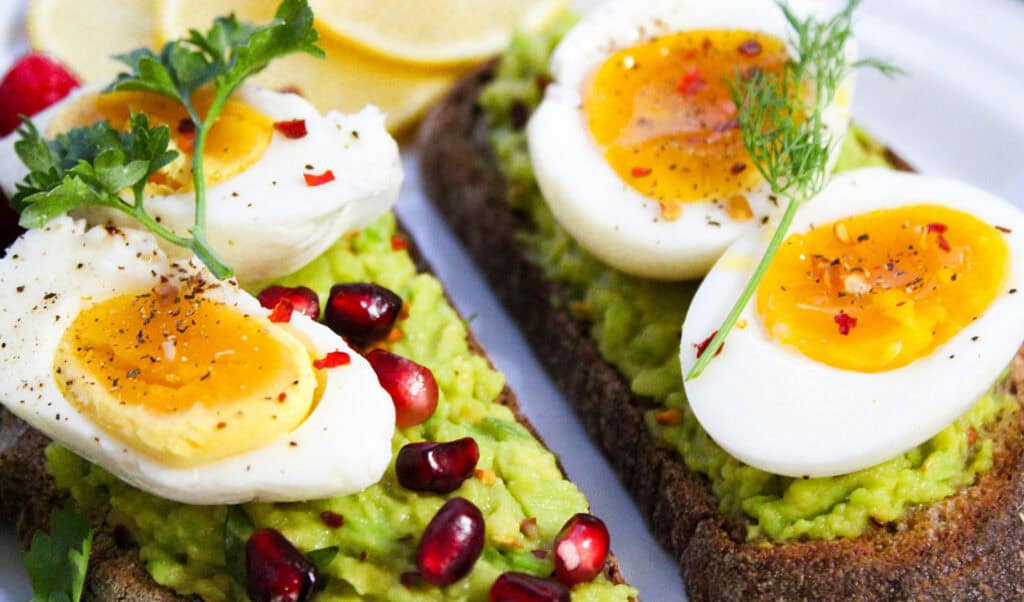
A balanced pre-fast meal combines complex carbs, protein, healthy fats, fiber, and hydration. This keeps you full, strong, and energized for hours.
Example Pre-Fast Meals:
✔ Oatmeal with nuts, a banana, and Greek yogurt – Provides fiber, protein, and healthy fats.
✔ Brown rice, grilled salmon, and steamed vegetables – Balanced in protein, carbs, and nutrients.
✔ Whole wheat toast with avocado and boiled eggs – High in fiber, protein, and healthy fats.
Tip: Eat at least 1-2 hours before fasting to allow digestion.
8. Foods to Avoid Before Fasting
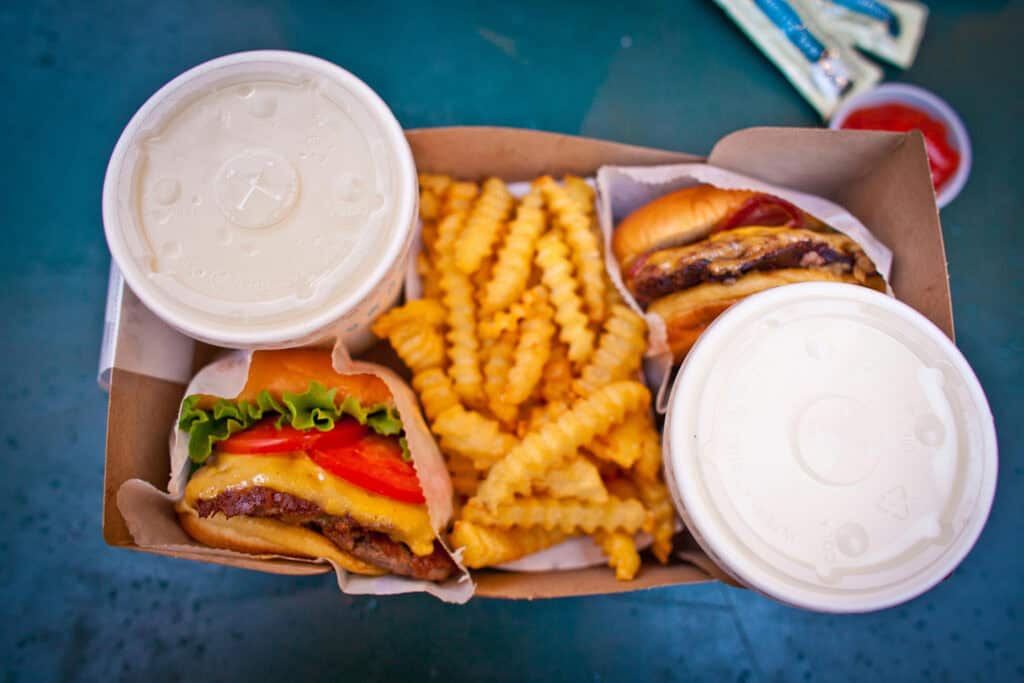
Some foods make fasting harder by causing hunger, dehydration, or energy crashes.
Foods to Avoid:
✖ Sugary foods (cakes, candies, sodas) – Cause blood sugar spikes and crashes.
✖ Processed foods (fast food, chips, pastries) – Lack of nutrition and cause hunger faster.
✖ Excess caffeine (coffee, energy drinks) – Leads to dehydration.
✖ Salty foods (chips, processed meats, canned soups) – Make you thirsty.
Tip: Avoid heavy, greasy meals before fasting, as they can cause bloating.
9. Tips for a Successful Fast
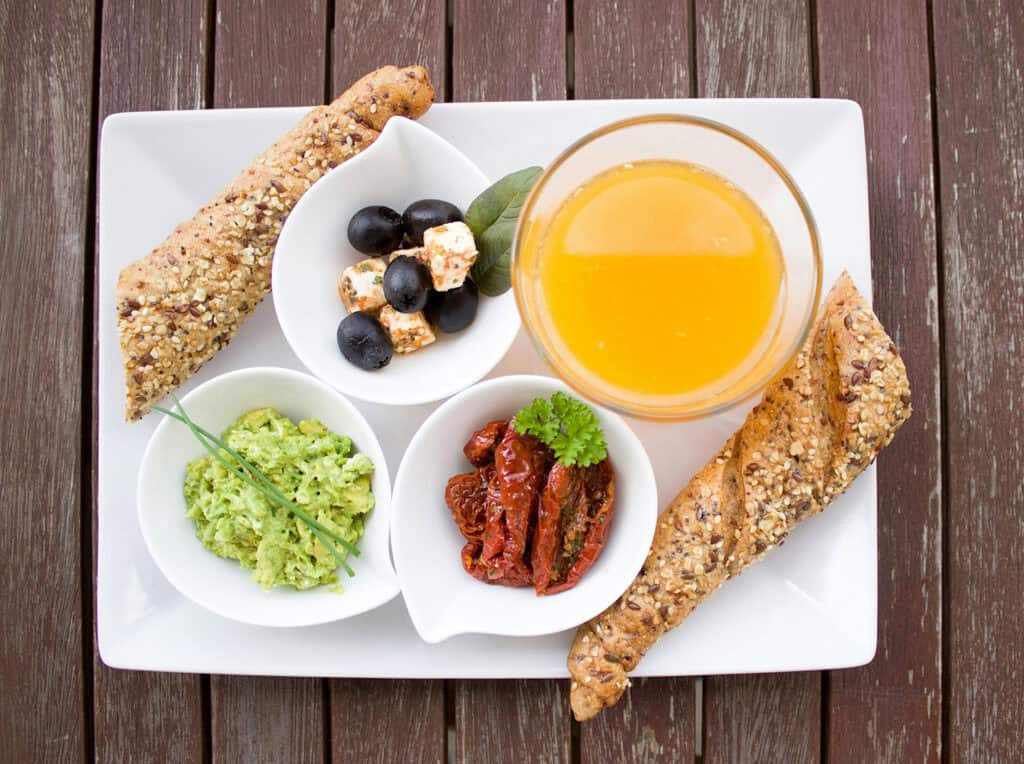
✔ Eat slowly – This helps digestion and prevents overeating.
✔ Stay hydrated – Drink water throughout the day before fasting.
✔ Choose nutrient-dense foods – Avoid empty calories.
✔ Get enough sleep – Helps your body handle fasting better.
See also 7-Day Rice Diet Plan: Detox and Reset Your Body
What to Eat Before a Fast? A Recap
Eating the right foods before a fast is important. It helps maintain energy and prevents hunger. Whole foods provide lasting fuel for your body. Choose complex carbohydrates like brown rice, oats, and quinoa. They release energy slowly.
Avoid unhealthy foods high in sugar and processed fats. They cause energy crashes. A good diet plan includes proteins like chicken, fish, and eggs. The chicken and rice diet is a great option. Healthy fats like avocado, nuts, and chia seeds keep you full.
Intermittent fasting supports weight loss and helps burn fat. Drinking water is also key. A balanced meal before religious fasting or any fast improves endurance and provides essential health benefits. Planning ahead makes fasting easier.

